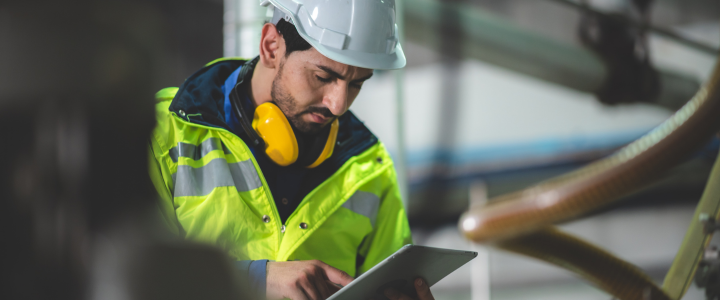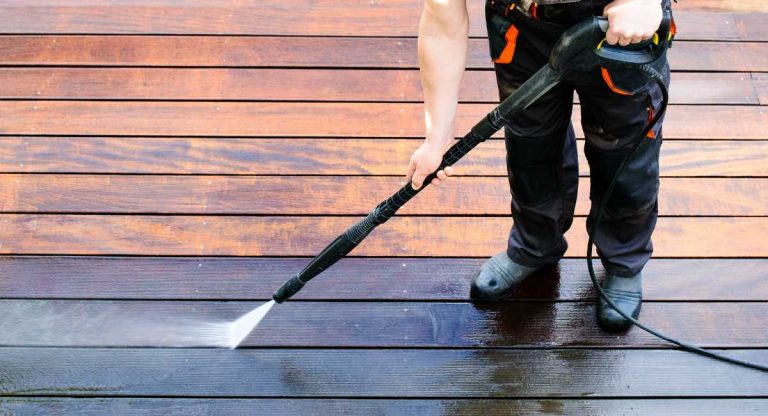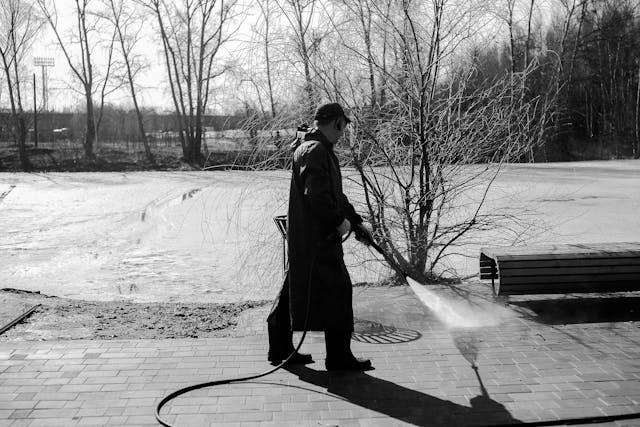
When it comes to power washing, the results are only as good as the equipment used. You could hire the most polite, punctual contractor around — but if their machines are weak, outdated, or poorly maintained, your surfaces might still look dingy. Worse yet, the wrong equipment can actually damage your home. 😬🏠
That’s why smart homeowners and property managers know to go one step further during the hiring process: ask about the equipment. It’s a sign of professionalism — and a way to separate true pros from underprepared weekend warriors. 🧼💪
Here’s how to confidently assess a power washing contractor’s tools before signing on the dotted line. ✅
🧠 Why Equipment Quality Matters
Power washing involves high-pressure water, powerful nozzles, and often cleaning chemicals — all of which need to be applied with precision and care. If a contractor uses the wrong pressure setting or nozzle, they can:
- Etch concrete
- Strip paint
- Blow water under siding
- Damage soft wood or trim
On the other hand, professional-grade equipment ensures a thorough, even clean without harm to your surfaces.
Quality tools = quality results. 🧽✨
❓ Questions to Ask the Contractor
Start with these questions before they even arrive for an estimate:
- “What kind of equipment do you use?”
- “Is your setup commercial-grade or residential?”
- “Do you use hot water or cold water systems?”
- “Can you explain the pressure settings you use for different surfaces?”
- “What kind of surface cleaners or attachments do you use?”
If they struggle to answer or give vague, non-technical responses, that’s a red flag. 🚩
🔍 What to Look for When Inspecting Equipment
If the contractor comes for an in-person quote, take a look at their setup. You don’t need to be a power washing expert — just look for the basics:
✅ 1. Commercial-Grade Pressure Washer
A quality contractor will use a gas-powered unit, often mounted on a trailer or truck. These machines typically deliver:
- 3,000–4,000+ PSI (pounds per square inch)
- 3–5 GPM (gallons per minute)
These specs offer the power and flow needed for deep cleaning, without taking forever. ⚡
Avoid: lightweight electric units — these are fine for homeowners doing a deck or small patio, but not for pro-level jobs.
✅ 2. Proper Hose and Nozzle Selection
Nozzles matter. The contractor should have multiple spray tips or a variable nozzle system, including:
- 0° (red – pinpoint, rarely used)
- 15° (yellow – concrete and hard surfaces)
- 25° (green – general cleaning)
- 40° (white – soft rinse)
- Soap nozzle (black – for detergent application)
Bonus points if they use a turbo nozzle for deep grime or a surface cleaner for driveways. 🌀
Look for flexible, durable hoses in good condition. Kinks, frays, or duct tape are signs of poor maintenance. 🧯
✅ 3. Soft Wash System (if applicable)
For delicate surfaces like:
- Vinyl siding
- Stucco
- Roofs
- Painted wood
…a good contractor will use a soft wash system. This combines low-pressure water with eco-friendly detergents that gently remove algae, mold, and mildew without blasting the surface. 🫧
Ask: “Do you offer soft washing for siding or roofs?”
If they say “we use high pressure for everything,” walk away. 🛑
Browse Amazon Here For Soft Washing Equipment And Accessories
✅ 4. Water Source and Heating Capabilities
Some commercial washers include hot water capability, which is ideal for:
- Grease/oil on driveways
- Commercial buildings
- Tough grime in shaded areas
Hot water penetrates faster and cleans more efficiently. Not every job requires it, but it’s nice when available. 🔥💦
Also, verify how they connect to water. Many will use your outdoor spigot, but larger companies may bring water tanks for bigger jobs or remote locations.
✅ 5. Chemical Applicators and Safety Practices
If they plan to use cleaners or bleach-based solutions, ask:
- “What detergents or surfactants do you use?”
- “Are they safe for pets, plants, and nearby surfaces?”
- “Do you pre-wet landscaping or cover electrical outlets?”
A knowledgeable contractor will explain their approach clearly and carry Material Safety Data Sheets (MSDS) for any chemicals used. 🧴🌱
🚧 Red Flags to Watch Out For
Here are signs that a contractor may not be up to standard:
- Shows up with a plastic electric washer and garden hose
- Can’t explain how they adjust pressure or nozzles
- Uses one setting for all surfaces
- Refuses to show equipment before the job
- Says “trust me, I’ve done this a hundred times” without specifics
Power washing, when done poorly, can ruin paint, tear screens, or warp wood. You’re hiring an expert — so don’t settle for less than pro-level gear. 🛠️
📸 Bonus Tip: Ask for Before-and-After Photos
Contractors who take pride in their work often keep photos or videos of past jobs — especially if they’re using great equipment.
Seeing their setup in action helps you verify the quality of both tools and technique. It also gives you peace of mind that they’ve handled similar projects before. 📷🧼
🏁 Final Thoughts
When hiring a power washing service, don’t just focus on price and scheduling — take a moment to check the equipment they’re bringing to your home. The difference between consumer-grade and commercial-grade tools can be the difference between average and amazing results. 💪🏠✨
Ask smart questions, request details, and look for red flags. A contractor who takes pride in their tools is far more likely to take pride in the job they do for you.
Browse Amazon Here For Popular Pressure Washers And Accessories






